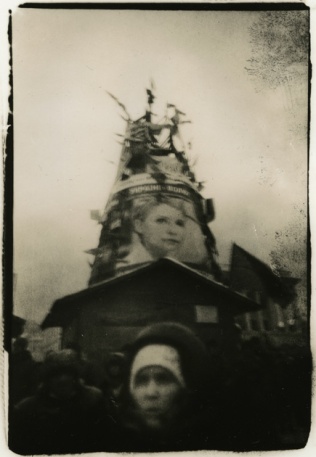[youtube]http://www.youtube.com/watch?v=-nEWVFb7w_Y[/youtube]
Unemployed Macedonians organized protests today in Skopje, in front of the Union of Labor Unions of Macedonia (ULUM) building. During the protests, they chanted “Bosnia,” “Bosnia,” and stated that, should changes not take place, Macedonia will witness a scenario worse than the one in Bosnia and Herzegovina, Anadolia Agency reported.
Several hundred Macedonian citizens were protesting the new legal regulations that affect only a small number of laid-off workers. Protests were supported by leftist organizations such as “Lenka,” and “Solidarnosti.”
Protesters demanded that the union president, Živko Mitrevski, address them, chanting slogans against the ULUM.
The leader of the unions, however, only issued a written statement, which notes that he will protect workers’ rights, and that they are attempting to solve this problem.
There were clashes with the police and protesters in front of the government building and four people were injured. Police also detained one of the organizers of the protest, Ljiljana Gjorgievska, as well as Vasko Cacanovski from “Solidarnosti,” both of whom were later released after Uraniya Pirovska, the president of the Helsinki Committee for Human Rights in Macedonia intervened.
Ljiljana Gjorgievska later stated to the press that they live in terrible times
“Our government is not behaving the way we want, but more like the governments of Bosnia and Herzegovina or the Ukraine. If they want to pick a fight, next time we will come prepared. We will fight for our rights and they cannot scare us,” Gjorgievska noted.
She also said that they want the Minister of Internal Affairs of Macedonia, Gordana Yankulovska, to resign, adding that the condition they find themselves in is a result of discrimination and abuse of power.
Gjorgievska also invited the representatives of embassies in Macedonia to open the borders of their countries to 6,000 work refugees, unless the Macedonian government manages to solve this problem.
Pirovska added that she will begin an investigation into the events at the protests.

 Conakry — At least two people including a trainee policeman were killed and 33 wounded as residents angry at power shortages rioted in the Guinean capital Conakry on Tuesday, security sources and witnesses told AFP.
Conakry — At least two people including a trainee policeman were killed and 33 wounded as residents angry at power shortages rioted in the Guinean capital Conakry on Tuesday, security sources and witnesses told AFP.